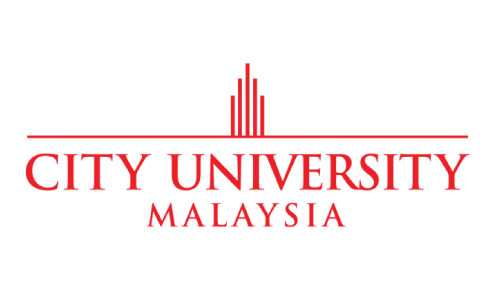
Doctor of Business Administration
The Doctor of Business Administration (DBA) programme equips graduates with analytical and problem-solving skills for undertaking independent research at the doctoral level. The aim is to find solutions to business problems at the national and international levels. Graduates are encouraged to disseminate their research findings through publications and journal articles
Based on 21,501+ reviews | 650,000+ learners
Our Alumni Work At:
Our learners occupy top positions in companies across industries and some of the world’s best-known firms




















98.2%
Completion Rate
91.2%
Course Pass Rate
95%
Submission Rate
88%
Student Satisfaction
Speak to our Admission Team
Program Overview
The Doctor of Business Administration (DBA) programme equips graduates with analytical and problem-solving skills for undertaking independent research at the doctoral level. The aim is to find solutions to business problems at the national and international levels. Graduates are encouraged to disseminate their research findings through publications and journal articles.
About City University
City University in Selangor, Malaysia was founded by a group of scholars with extensive experience in local and international universities in April 1984. The mission of the university is to provide high-quality industry and market-driven educational courses/programmes to produce knowledge-based, socially responsible leaders and managers.
The programmes offered at City University are comprehensive and recognised by the Ministry of Higher Education (MOHE) as well as the Malaysia Qualifications Agency (MQA). The accreditation provides local and international recognition of City University as an institution of higher learning. Additionally, the Ministry of Higher Education Malaysia recognises the university as a credible education provider.
Course Structure
Code | Course |
|---|---|
EDA509 | Essential Instructional Strategies |
EDA519 | Child and Adolescent Development |
EDA529 | Curriculum, Instruction, and Assessment |
EDA539 | Special Needs Students |
EDA549 | Principles of School Leadership and Management |
EDA559 | Education Law |
EDA569 | Education Finance |
EDA579 | Foundations of Education |
EDA589 | Personnel Management and Supervision |
EDA599 | Principles of Continuous Improvement |
EDA609 | Mentored Practicum/ Internship |
EDA619 | Portfolio Project |
Learning Outcomes
Live & interactive lectures by expert faculties
Recorded session for offline viewing
World-class curriculum by eminent faculty
Regular webinars by industry leaders
Assignments for module assessments
Easy-to-use LMS accessible anywhere
Online library to further enhance your knowledge
Dissertation on your area of research work
Program Details
Qualitative Advanced Business Research Methods
Objectives
In this course, students will:
- Learn the concepts, fundamentals and techniques of research.
- Get guidance on the research procedures from the research problem identification, literature review, data collection, analysis and conclusion.
- Exposure to the various research methodology, effectiveness, weakness, and application.
Learning Outcomes
At the end of this module, students will be able to:
- Explain the different research methodologies and select the appropriate methods for the student’s research area.
- Analyse research journals and study different forms of research methodologies in a given research area.
- Write a detailed framework for the research area under study.
- Compare and assess different organisations by use of the research methodology tools.
- Analyse their organisations using research tools to improve effectiveness.
Quantitative Advanced Business Research Methods
Objectives
In this course, students will be:
- Taught the concepts, fundamentals and techniques of quantitative methodology and its applicability to the industry.
- Guided on quantitative skills to enhance teaching and learning to provide professional development as a lecturer/academician/practitioner.
- Exposed to various statistical tools, their effectiveness, their drawbacks and their application.
Learning Outcomes
At the end of this module, students will be able to:
- Explain the different statistical and econometrics tools and select the appropriate tools for the student’s research area.
- Analyze various business management problems with the use of selected statistical tools.
- Apply standard statistical packages like SPSS and eVIEW
Innovation & Entrepreneurship
to provide students with the opportunity of reviewing concepts of entrepreneurship in an international environment and with particular reference to entrepreneurship in Asia and the Pacific.
- to develop students in the advanced theory of entrepreneurship and economic thought.
- to provide students with the opportunity to consider applications of entrepreneurship to corporations, public and private sector enterprises and corporate ventures.
- to illustrate, through cases, the application of entrepreneurship to a wide range of private sector industries, non-profit sectors and the public sector
Learning outcomes
On completion of this course, students should be able to:
- Apply concepts of entrepreneurship to self-employment, corporations, and non-profit and public sector organisations
- Apply the principles of entrepreneurship in the Asia-Pacific region
- Apply concepts of entrepreneurship to their own workplace environment
- A clear grasp of the body of knowledge in the selected discipline area
- An appreciation of recent scholarly advances in the discipline area
- The ability independently to access recent scholarly literature
- The ability to write at a doctoral level in a chosen discipline area
- An appreciation of the value of independent scholarly inquiry.
Corporate Governance and Social Responsibility
Objectives
In this course, students:
- Learn the concepts, fundamentals, and management models and their applicability to the industry.
- They are guided on the process and components required to build leadership capabilities and manage change within the students.
- Exposed to various management systems, their effectiveness, their drawbacks and application in leading organisations
Learning Outcomes
At the end of this module, students will be able to:
- Explain essential management theories and models of successful management
- Analyse the different organisational cultures and structures and the building blocks of organisations.
- Apply control techniques to improve organisation effectiveness.
Advanced Marketing Management
Objectives
In this course, students will be:
- The learners are taught the concepts, fundamentals and models of global marketing plans and systems.
- Guidance is given on the procedures involved in forming an effective global marketing plan within an organisation.
- Exposed to global marketing strategies, their effectiveness, their drawbacks and its application in leading organisations.
Learning Outcomes
At the end of this module, students will be able to:
- Explain how marketing strategies can provide for a more effective organisation.
- Analyse how businesses can use different global marketing plans and strategies to obtain a competitive advantage.
- Explain the major types of global marketing strategies, and discuss how each supports the operations of a business.
- Compare and link their educational experience in global marketing with their workplace.
Leadership
Objectives
- Increase the cognitive understanding of basic leadership theories and models, the ability to evaluate their relevance, and the ability to apply them to specific situations.
- Understand the meaning of leadership and begin to identify personal values, traits, and goals, and define a personal leadership style. Be able to evaluate personal leadership effectively in different contexts.
- Improve knowledge and skills important to personal effectiveness in working with people in the leadership process, including,
- a) Diagnostic, evaluation, and planning skills.
- b) Effective communication and relationships.
Learning Outcomes
Upon successful completion of the subject, the students will:
- Become fully familiar with leadership traits, behavior and motivation
- Have a full understanding of leadership theory paradigms
- Will be able to explain a leader’s role in creating a culture that supports teams and the management of diversity in a learning organization.
Strategic Human Resources Management
Objectives
The primary objective of this course is to enable the DBA candidates to be thoroughly familiar with the strategic role of HRM for organisational performance. This requires the design and application of formal systems in organisations to ensure human talent’s effective and efficient use to accomplish organisational goals.
Upon completion of this course, candidates will also become fully knowledgeable of the activities that must be undertaken to develop and maintain an effective workforce and also the competencies to find the right people to place them in positions where they can be most effective and develop them further to enhance their contribution to the companies success.
Learning Outcomes
Upon successful completion of the module, the students:
- Become thoroughly familiar with the strategic role of HRM in improving organisational performance.
- Will be able to adopt a strategic approach for developing human capital through training and development to drive performance.
- Will have the competencies to undertake Human Resource Planning with capabilities for assessing organisational needs and matching them with quality employees.
Advanced Financial Management
Objectives
In this course, students will:
- Learn about awareness and understanding of essential issues in corporate finance.
- Learn to relate financial and theoretical models to real-world phenomena.
- Exposed to “classic” finance contributions, however, current financial developments will also be discussed.
- Exposed to potential avenues for future research interest in finance
- Guided on the use of tools from contract theory and game theory.
Learning Outcomes
At the end of this module, students will be able to:
- Analyse various theories and paradigms of finance
- Explain the various theories, concepts and fundamentals of finance
- Apply different financial policies, investment policies and resource allocation in organisations
- Compose special financial written reports on organisations
- Critique organisations operations using relevant financial theories
Global Business Strategy and Policy
Objectives
In this course, students will:
- Learn the concepts, fundamentals, and strategic management models and their applicability to the industry.
- Be guided on the procedures involved in the strategy formation and implementation within an organisation.
- Get exposure to different strategic management systems, their effectiveness, drawbacks, and application in leading organisations.
Learning Outcomes
At the end of this module, students will be able to:
- Explain problematic issues within any organisation, give an overall analysis and make strategic suggestions to solve them.
- Analyse strategic processes within organisations and identify accurate choices of strategies which affect firm performance.
- Analyse and critique thoroughly how the various functional areas (e.g., marketing, MIS, or finance) interact with each other and ultimately contribute to strategy.
What makes our business school different?
Accredited Degrees
Gain an accredited online Master's through our online course in Nigeria which is recognized and accepted worldwide.
Low Fees
Get as much as 60% scholarship on our online Master's courses.
100% Assignment Based
All modules are assessed via submitted assignments - there are no exams to write.
Easy Payment Structure
You can pre-structure your preferred payment option. Pay in easy instalments.
Graduate On Campus
Celebrate your success by having your graduation on campus.
Dual Qualifications
Earn an Master's Degree + International Postgraduate Diploma in Relevant Specialization
Learners say about Markingo
Markingo's counselling support made my dream of pursuing an on-campus degree a reality. Their seamless platform provided me with the flexibility I needed to balance work and studies. Thank you, Markingo!

Sarah A.
Business Administration StudentI can't thank Markingo enough for their support throughout my online degree journey. The counselling support option removed the counselling burden, allowing me to focus wholeheartedly on my studies. Highly recommended!

John M.
Computer Science GraduateChoosing Markingo was the best decision I made for my education. Their range of online and on-campus degree options is impressive, and the counselling support process was straightforward. I'm proud to be a Markingo graduate!

Emily R
Healthcare Management ProfessionalMarkingo's counselling support not only helped me secure admission to my dream university but also provided peace of mind knowing that counselling were taken care of. I'm forever grateful for this opportunity!

Ahmed S.
Engineering StudentI was hesitant about pursuing higher education due to counselling constraints until I discovered Markingo. Their counselling support program made it possible for me to pursue an online degree without worrying about tuition fees. Thank you, Markingo, for making education accessible!

Maria L.
Psychology MajorAs a working professional, I needed a flexible option for obtaining my degree. Markingo's online programs, coupled with their counselling support facility, allowed me to balance work and studies seamlessly. I'm proud to be a part of the Markingo community!

David K
Marketing ExecutiveMarkingo's commitment to student success is unparalleled. The counselling support option enabled me to pursue an on-campus degree at a prestigious institution without counselling stress. I couldn't have asked for a better educational partner! - ,

Anna B.
Counselling GraduateMarkingo's counselling support made it possible for me to pursue my passion for technology without worrying about counselling. The support and resources provided by Markingo helped me excel in my studies and kick-start my career. Thank you, Markingo!

Michael T
Information Technology SpecialistI'm grateful to Markingo for their unwavering support throughout my academic journey. The counselling support option eased my counselling burden and allowed me to focus on achieving my academic goals. I highly recommend Markingo to anyone seeking quality education!

Jessica H
Environmental Science StudentLive & interactive lectures by expert faculties
Recorded session for offline viewing
World-class curriculum by eminent faculty
Regular webinars by industry leaders
Assignments for module assessments
Easy-to-use LMS accessible anywhere
Online library to further enhance your knowledge
Dissertation on your area of research work
